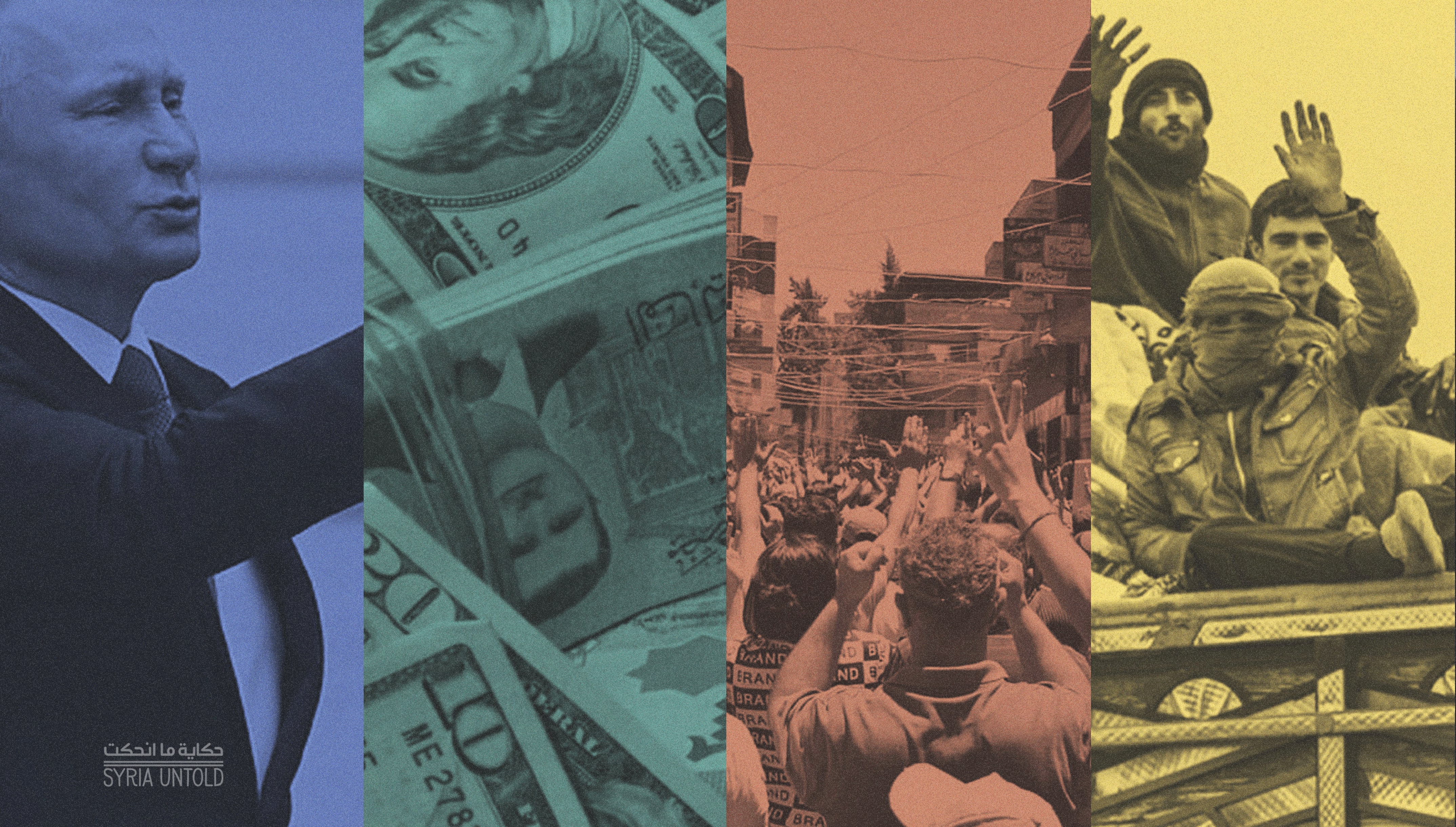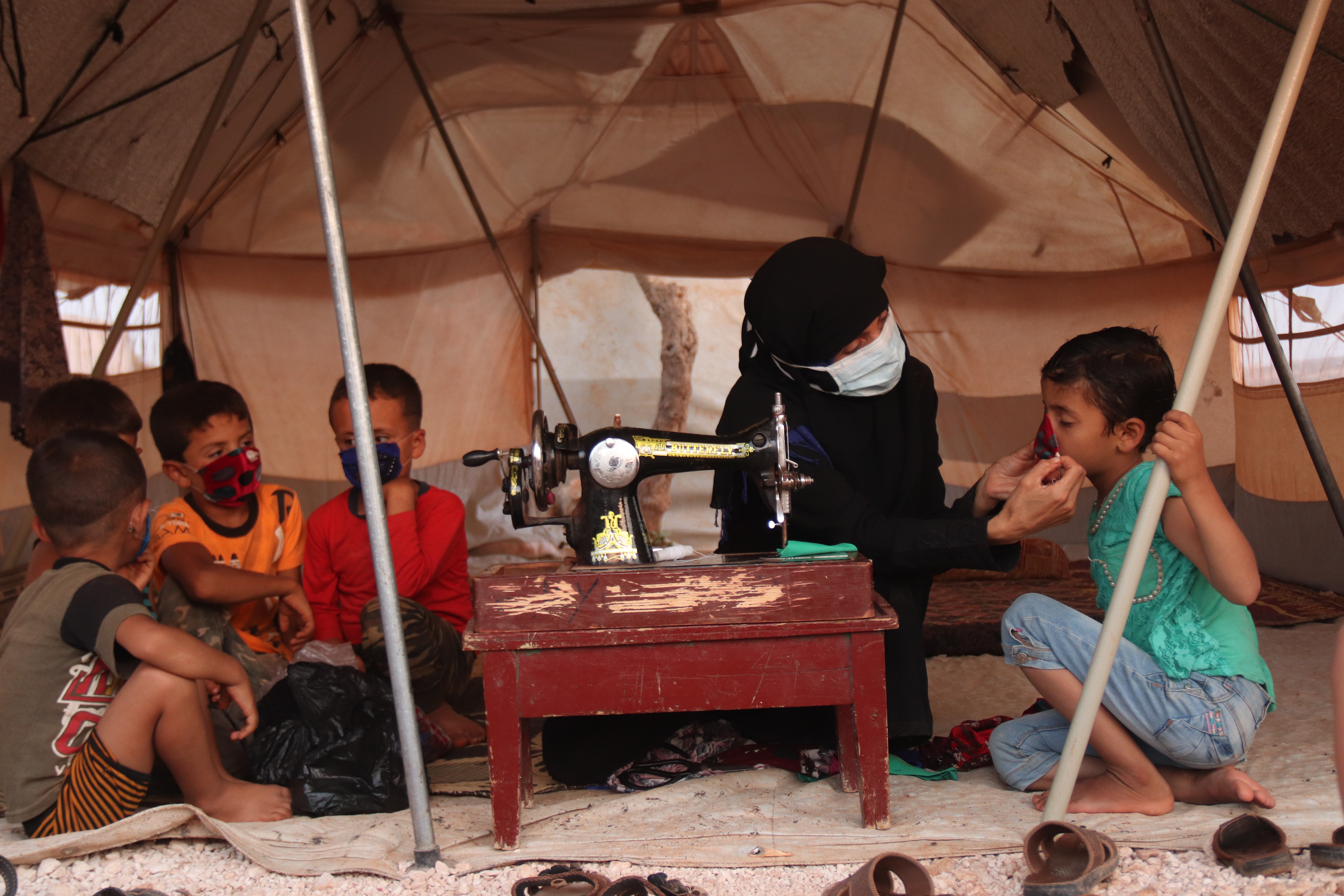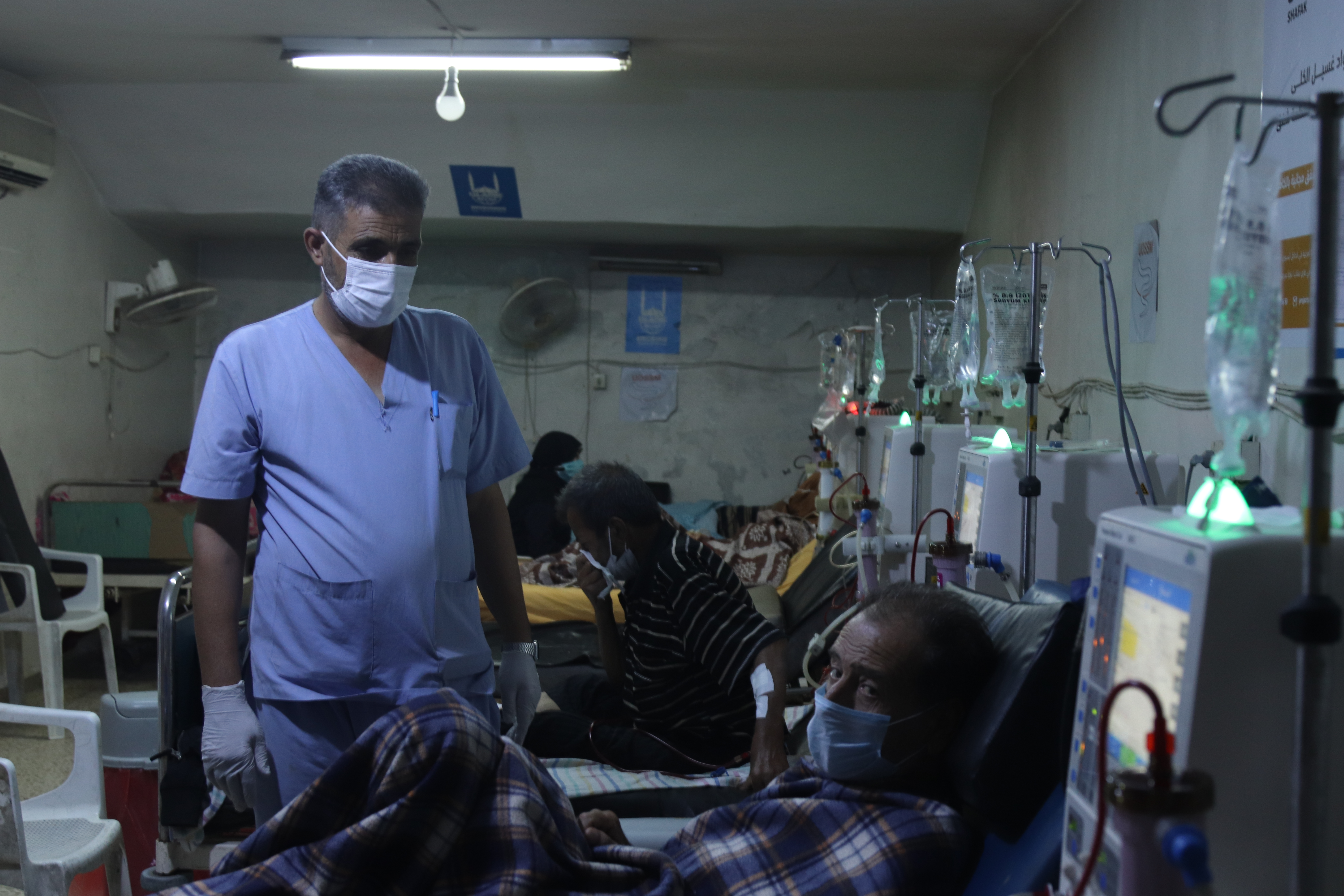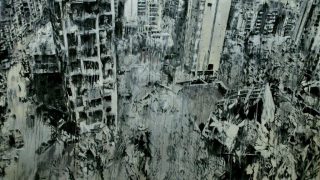Syria's veteran Foreign Minister Walid Muallem dies aged 79 (BBC)
“Long-time Syrian Foreign Minister Walid Muallem, one of the most prominent public faces for President Bashar al-Assad's government during the country's civil war, has died aged 79.
State media did not specify the cause of his death, but he had reportedly been in poor health for some time.
He was last seen in public last week.” Read more
Israel says it launched airstrikes on Syria over explosive devices at border (The Guardian)
“Israel’s military has said it launched air strikes against the Syrian army and Iran’s Quds Force in Syria on Wednesday after explosive devices were planted in the Israeli-occupied Golan Heights.
Biden won’t ease Syria’s grief
12 November 2020
In pictures: COVID-19 on the rise in northwestern Syria
14 November 2020
In a statement, the Israeli military said its planes hit storage facilities, military compounds and Syrian surface-to-air missile batteries.
The Syrian state news agency reported that three military personnel were killed and one was wounded in ‘Israeli aggression’ over Damascus.” Read more
Robert Fisk: A conscience adrift (Newlines Magazine)
“Robert Fisk championed the underdog. He empathized with the victim. But those labels were applied solely on his terms. His views ran contrary to what I saw as a genuine yearning for decency and democracy. Other famed storytellers had found their way to empathize with differing sides rather than continue to cast blame. Ziad Doueiri had given us his left-leaning sympathies in 1998’s ‘West Beirut,’ but also showed us East Beirut’s insecurities and emotions through 2015’s ‘The Insult.’ Fouad Ajami wrote the ‘The Arab Predicament’ in 1981 and was deemed a pro-American/self-hating Arab for decades, but ‘The Syrian Rebellion’ – published a year before his passing in 2012 – praised Syrian protesters risking their lives against tyranny. I could sympathize with the victims Robert wrote about without dismissing the suffering caused by his perceived underdogs.” Read more
ICMP report highlights need to launch missing persons process for Syria (Atlantic Council)
“The issue of missing and disappeared persons is complex everywhere, but especially in the Syrian context. An estimated 130,000 persons have gone missing in the present conflict, while the country already has a pre-war legacy of missing and disappeared persons cases—most notably from the 1982 Hama massacre. Syrians who have fled the fighting have gone missing along migratory routes and have been disappeared as a result of organized crime. At the same time, non-Syrians have gone missing in Syria, including journalists, Islamic State of Iraq and al-Sham (ISIS) fighters, and combatants from foreign armies.” Read more
Lebanese general was in Syria over missing American reporter (Associated Press)
“A top Lebanese security official said Saturday that he visited Syria for two days to speak with officials there about American journalist Austin Tice, who has been missing in the war-torn country since 2012.
Maj. Gen. Abbas Ibrahim did not give further details in an interview with the local Al-Jadeed television channel, but his comments came two weeks after his return from Washington where he is believed to have discussed Tice’s case with U.S. officials.” Read more
International and civil society organizations in Homs (Al-Jumhuriya)
“When the dark-skinned, twenty-something-year-old man who had just graduated from engineering school was offered a small job at a civil society organization he felt larger than life. He was doing everything: helping staffers with relief work, assisting the receptionist in the healthcare department, and even working with the photographers in the communications department. He even insisted on helping the cleaners if needed. That was in 2012, when his enthusiasm for the work outweighed everything else, and when civil society organizations were at the peak of their humanitarian and relief efforts. Their presence was more crucial than ever. Many people were both eager for and afraid of the work at the same time, as the job opportunities that were created by the circumstances of the time put young men and women into positions in which they never expected to find themselves.” Read more
‘The Book Collectors’ opens the door to a secret library amidst Syria’s civil war (NPR)
“Beginning in 2012, forces of the Assad regime laid siege to the town, pummeling it with barrel bombs, and sarin gas attacks; cutting off water, electricity and humanitarian aid — in short, inflicting the kind of determined total erasure of a city called ‘urbicide.’
Minoui, a Middle East correspondent for Le Figaro who lives in Istanbul, was on her computer one night in 2015, scrolling through the Facebook site, ‘Humans of Syria,’ when she was stopped by a black-and-white photo. The caption read: ‘the secret library of Daraya.’
In the photo, two young men in sweatshirts stand in a room lined with bookcases, packed tight. Her curiosity aroused, Minoui worked her contacts via Skype and WhatsApp to track down the photographer, a young man named Ahmad Muaddamani, one of the co-founders of the ‘secret library.’ He tells her an incredible story that Minoui, in turn, would spend years fleshing out.” Read more
Virus threat 'a new terror' in Syria's scarred Idlib region (Associated Press)
“Nurses hover over a patient to insert a breathing tube as his condition suddenly deteriorates. ICU beds fill up almost overnight. As one patient dies of the coronavirus and is wheeled out, another is whisked in to take his place. An exhausted doctor leans against a wheelchair for a breather.
The pace is dizzying at the largest isolation hospital in Syria's northwestern city of Idlib. There are no bombs falling outside and the wounded don't crowd bloodstained corridors amid a shaky cease-fire in the country's decade old civil war. Still, the intensive care unit staff is overwhelmed with beds full of elderly patients gasping for air.” Read more







